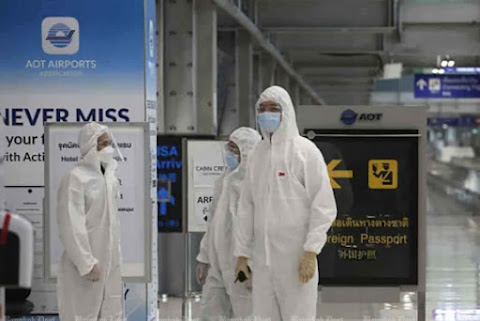Most tourist hotspots in Asia and Southeast Asia still remain out of bounds to international flights as travel restrictions remain due to the covid-19 pandemic. However some countries including Thailand are now making arrangements to lift the travel restrictions.
The Foreign Ministry has informed Thailand’s foreign chambers of commerce that foreigners who have work permits or permission from Thai government agencies will soon be allowed to enter Thailand.
Foreigners with work permits will be allowed to return once the aviation rules change. Unfortunately spouses and families are not included in the stipulation.
Travel Restrictions in place for Asian countries
THAILAND:
A ban on commercial international flights has been extended until end June. Nationals and foreigners with work permits can return on charter flights. But citizens need to provide certificates issued by Thai embassies, and foreigners are required to present a negative coronavirus test. There is a mandatory 14-day quarantine on arrival.
Thailand hopes to lift travel restrictions and reopen to limited international tourism later this year for “low-risk” countries including China and South Korea.
AUSTRALIA, NEW ZEALAND:
Borders are effectively closed except for returning citizens and residents, who are quarantined for 14 days. The two countries have talked about a possible “travel bubble” between them but New Zealand has said that is unlikely to happen while travel between Australian states remains restricted. A travel bubble may include Pacific Islands.
CHINA:
Citizens can return under their travel restrictions, but the entry of most foreigners is banned. Including those with valid visas and residence permits, remains suspended.
It has, however, signed a fast-track programme with South Korea and Singapore to allow essential business travel and is in talks with more countries to do so.
It has also allowed foreign executives and technical personnel from some other nations to enter on pre-approved charter flights, sometimes with reduced quarantine, to accelerate the resumption of business.
INDIA:
Borders are effectively closed as coronavirus cases have surged to over 267,000. India said this week it will take a call on resuming international flights as soon as countries ease restrictions on foreign nationals.
INDONESIA:
Citizens and long-term pass holders may enter, but must bring documents showing they are free of the coronavirus or undergo tests at the airport. The country is opening up domestic travel from Wednesday with safety and quarantine measures.
JAPAN:
The country is considering an easing of travel curbs, although it is likely to require testing and the submission of a travel itinerary,Reuters reported. It is in talks with some countries to reopen borders, with business travellers and medical staff expected to be fast-tracked.
MALAYSIA:
Borders remain effectively closed, but interstate travel will be allowed starting June 10. Returning Malaysians who test negative can self-isolate at home for 14 days starting Wednesday, instead of at a quarantine centre.
SINGAPORE:
Singapore is allowing travellers to transit through its main airport, but borders remain effectively closed. It is in talks with some countries about reopening travel links, including Malaysia and New Zealand.
SOUTH KOREA:
A few international flights continue to operate. All citizens and foreigners who enter are quarantined for two weeks. Diplomats or foreigners with official business status are exempted from mandatory quarantine but are tested on arrival.
TAIWAN:
Borders remain closed other than for citizens, foreigners with residence permits and a few other exceptions. Everyone coming in has to undergo a 14-day quarantine. The government said it will be cautious when looking at whether to ease border restrictions given the serious situation still in many countries.
A limited number of international flights continue to operate.
VIETNAM:
Borders remain closed except for citizens as well as foreign experts with valid work permits and negative coronavirus test certificates who are returning on charter flights. A 14-day quarantine upon arrival is mandatory.
The government on Tuesday said it was seeking to end travel restrictions and reinstate international flights. Only to countries that had been free of the virus for 30 days. Flights would resume these with limited frequency and priority given to foreign experts and investors.
Source - The Chiang Rai Times




















